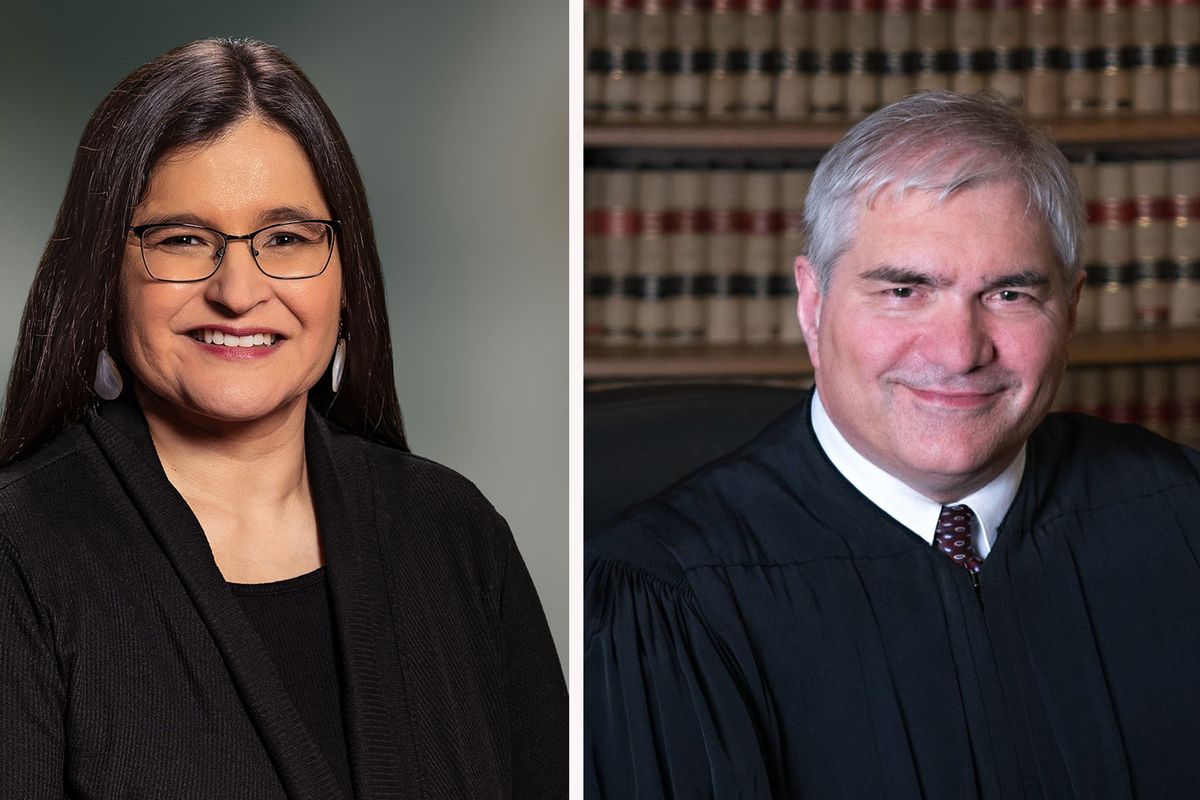Supreme Court Justice Raquel Montoya-Lewis defends seat against Federal Way Judge David Larson

A newly appointed Supreme Court justice with a background in Native American tribal law has drawn a challenge from a Federal Way municipal judge for her seat.
Justice Raquel Montoya-Lewis is running in November to keep the seat on the state’s highest court she was appointed to in December. Her challenger is Judge David A. Larson, the presiding judge in Federal Way, who says he’s running to provide the panel with more input from trial judges across the state.
Montoya-Lewis, 52, is an enrolled member of the Pueblo of Isleta tribe in New Mexico, and had a lengthy career in tribal law before being appointed by Gov. Jay Inslee as a Whatcom County Superior Court judge in 2014. She’s the first Native American justice on the state’s highest court.
The justice said ensuring access to the legal system, both literal and figurative, was an important part of the job on the high court.
“My experience, having worked in all kinds of communities, is that there is in many underrepresented communities a great deal of skepticism about fairness,” said Montoya-Lewis, who in addition to her work as a judge has been a lawyer and associate professor at Western Washington University’s Fairhaven College of Interdisciplinary Studies.
Larson, 62, said he was also concerned about the perception of the justice system by communities that have historically been marginalized. This is Larson’s second run for the state Supreme Court seat, having finished behind incumbent Justice Charle Wiggins in 2016. Montoya-Lewis replaced Justice Mary Fairhurst through appointment by Gov. Jay Inslee.
Larson, who practiced as an attorney for 23 years before assuming the bench in Federal Way, said it’s not the people involved in the system necessarily, it’s structural change that’s needed to address racism. In 2018, Larson invited Doug Baldwin, the Seattle Seahawks wide receiver, to join him on the bench to observe the judicial process after Baldwin called for an end to cash bail for low-level offenders.
“We could be spending more time working on root causes,” Larson said. “The first time somebody’s there, if we can get it then, we’re going to save a lot of grief for that person.”
That means bolstering community and therapeutic courts and getting them to work together, Larson said. Both he and Montoya-Lewis said the job of a Supreme Court justice extends beyond hearing arguments and penning decisions; it also includes pushing for changes to what many may see as mundane court rules that affect defendants and those seeking justice in sometimes profound ways.
“Things as simple as rules that sort of sound boring, are actually critical,” Montoya-Lewis said. “Particularly now. For example, how do you administer jury trials in a COVID-19 world?”
Larson said the Supreme Court could benefit from a voice advocating for greater guidance for trial court judges, like the position he’s held in Federal Way since 2008.
“I’ve come to the conclusion that I think I have to run for the court to be in the position to help my colleagues,” Larson said.
All voters in Washington state can cast ballots for Supreme Court justices. Voting in the general election begins Oct. 16, with ballots due Nov. 3.